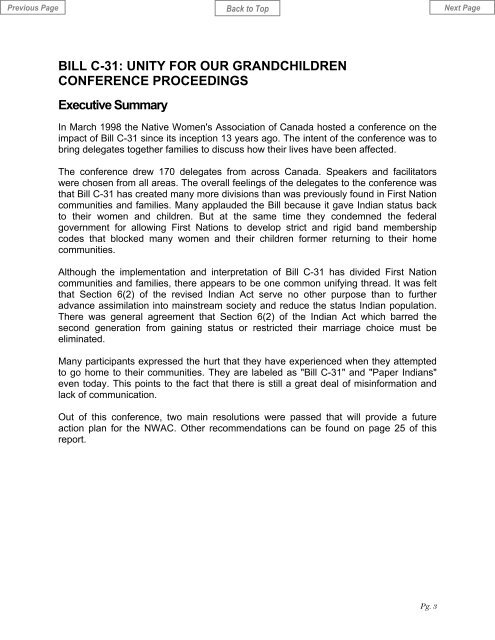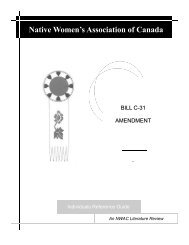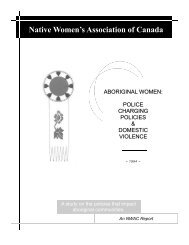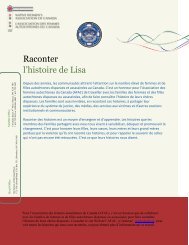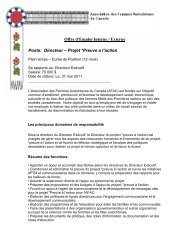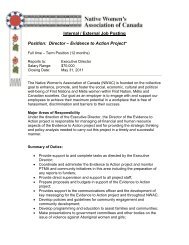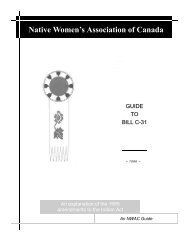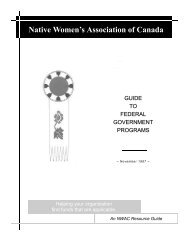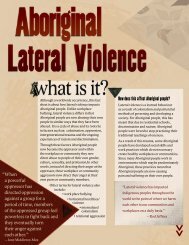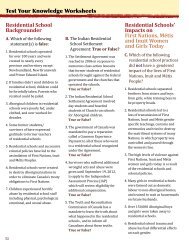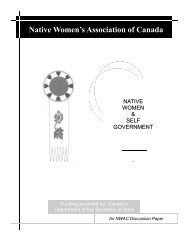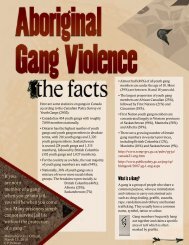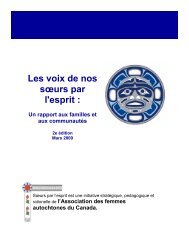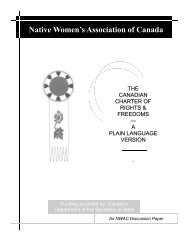BILL C-31 - Native Women's Association of Canada Website
BILL C-31 - Native Women's Association of Canada Website
BILL C-31 - Native Women's Association of Canada Website
- No tags were found...
Create successful ePaper yourself
Turn your PDF publications into a flip-book with our unique Google optimized e-Paper software.
<strong>BILL</strong> C-<strong>31</strong>: UNITY FOR OUR GRANDCHILDRENCONFERENCE PROCEEDINGSExecutive SummaryIn March 1998 the <strong>Native</strong> <strong>Women's</strong> <strong>Association</strong> <strong>of</strong> <strong>Canada</strong> hosted a conference on theimpact <strong>of</strong> Bill C-<strong>31</strong> since its inception 13 years ago. The intent <strong>of</strong> the conference was tobring delegates together families to discuss how their lives have been affected.The conference drew 170 delegates from across <strong>Canada</strong>. Speakers and facilitatorswere chosen from all areas. The overall feelings <strong>of</strong> the delegates to the conference wasthat Bill C-<strong>31</strong> has created many more divisions than was previously found in First Nationcommunities and families. Many applauded the Bill because it gave Indian status backto their women and children. But at the same time they condemned the federalgovernment for allowing First Nations to develop strict and rigid band membershipcodes that blocked many women and their children former returning to their homecommunities.Although the implementation and interpretation <strong>of</strong> Bill C-<strong>31</strong> has divided First Nationcommunities and families, there appears to be one common unifying thread. It was feltthat Section 6(2) <strong>of</strong> the revised Indian Act serve no other purpose than to furtheradvance assimilation into mainstream society and reduce the status Indian population.There was general agreement that Section 6(2) <strong>of</strong> the Indian Act which barred thesecond generation from gaining status or restricted their marriage choice must beeliminated.Many participants expressed the hurt that they have experienced when they attemptedto go home to their communities. They are labeled as "Bill C-<strong>31</strong>" and "Paper Indians"even today. This points to the fact that there is still a great deal <strong>of</strong> misinformation andlack <strong>of</strong> communication.Out <strong>of</strong> this conference, two main resolutions were passed that will provide a futureaction plan for the NWAC. Other recommendations can be found on page 25 <strong>of</strong> thisreport.Pg. 3


